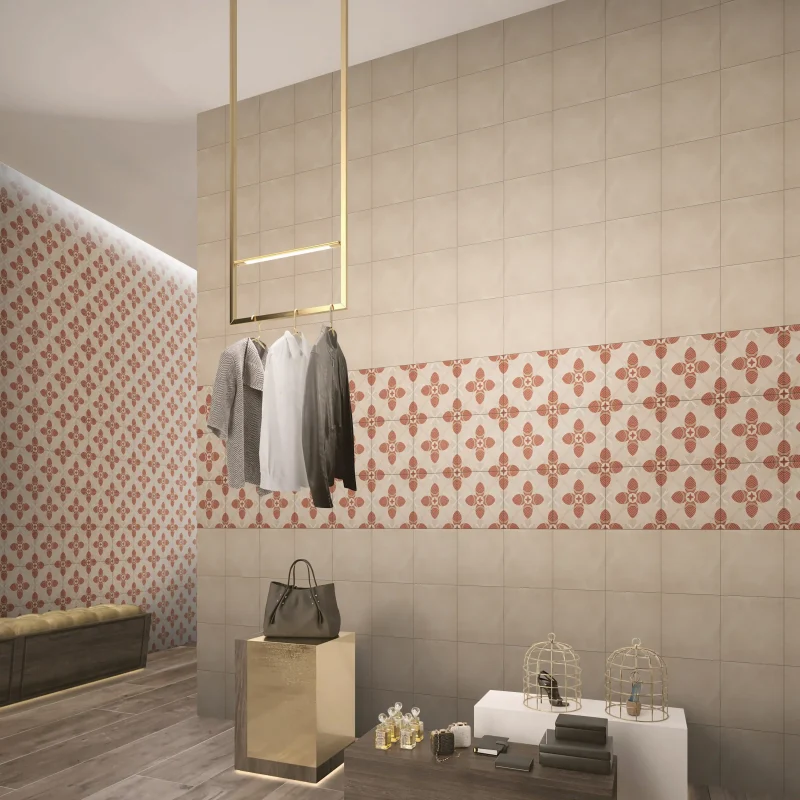Tiles have been an integral part of Middle Eastern architecture and interior design for centuries, bringing vibrant colors, intricate textures, and mesmerizing patterns to walls, floors, and even ceilings. From the dawn of civilization to contemporary interiors, tiles have been a versatile material that has been utilized to craft an array of stunning designs and styles. In this captivating article, we shall delve into the captivating history and significance of tiles in Middle Eastern architecture and interior design, exploring their various types and how they can elevate the aesthetics of any space.
- History of Tiles in Middle East
- Types of Tiles available in Middle East
- Enhancing Aesthetics with Tiles in Middle East
- Tile Designs in Middle East
- Tile Production Methods in Middle East
- Top Tile Manufacturers, Supplier in Middle East
- The Best Tiles for Specific Areas
- Popular Tile Trends in Middle East
- The Best Tile Showrooms in Middle East
- Maintaining Tiles in Middle East
- Tile Shopping Tips in Middle East
- Tile Prices in Middle East
- Sustainability in Tile Production
- Choosing the Best Tile for Your Budget available in Middle Eastern Continent
- DIY Tile Installation Tips
- Essential Tools for Tile Installation
- Step-by-Step Guide to Tile Installation
- Conclusion
History of Tiles in Middle East
Tiles have a long and rich history in the Middle East, dating back thousands of years. From the intricate designs of Islamic tilework to the colorful mosaics of ancient Persia, tiles have played a significant role in the art and architecture of the region.
The earliest known examples of ceramic tiles in the Middle East were discovered in Mesopotamia, the ancient region that roughly corresponds to modern-day Iraq, Kuwait, and parts of Syria and Turkey. According to sources, These tiles, dating back to around 4000 BCE, were used to decorate the walls of homes and public buildings. They were typically made from clay and decorated with geometric patterns and images of animals and people.
Over the centuries, the use of tiles spread throughout the region. In ancient Persia, tiles were used to create intricate mosaics for palaces, mosques, and public buildings. The most famous example of Persian tilework is the stunning Blue Mosque in Tabriz, which features elaborate blue and turquoise tilework dating back to the 15th century.
Islamic tilework, which emerged in the 7th century, is perhaps the most well-known and celebrated form of tile art in the Middle East. Islamic tiles are renowned for their intricate geometric patterns and calligraphic inscriptions, which often feature verses from the Quran. Islamic tilework can be found in mosques, palaces, and public buildings throughout the Middle East, including the Alhambra in Spain, the Blue Mosque in Istanbul, and the Dome of the Rock in Jerusalem.
In addition to their decorative uses, tiles also played an important practical role in the Middle East. In arid regions where water was scarce, tiles were used to create complex systems of channels and aqueducts that transported water to homes and fields. These systems, known as qanats, were essential for agriculture and the development of urban centers.
Today, tiles continue to be an important part of the Middle Eastern art and architecture. Many of the traditional techniques and designs have been passed down through generations of artisans, and new innovations in ceramic technology have allowed for even more intricate and complex designs. Whether they’re used to decorate the walls of a mosque or the floors of a home, tiles remain an enduring symbol of the region’s rich cultural heritage.
Read More: Top 20+ Architect Exhibition You must Visit
Types of Tiles available in Middle East
There are various types of tiles that have been used throughout Middle Eastern history, each with its own unique characteristics and uses. Some of the most popular types of tiles include:
Ceramic Tiles
Transforming spaces in the Middle East is made easy with ceramic tiles! These versatile tiles, crafted from clay, offer an array of colors, sizes, and shapes to choose from. Ideal for bathrooms and kitchens, these tiles are perfect for keeping moisture at bay while adding a touch of style to your floors and walls.
Terracotta Tiles
For centuries, Middle Eastern homes have been elevated with the rustic charm of terracotta tiles. Sourced from natural clay, these tiles emanate a cosy, earthy hue that effortlessly brings the Mediterranean style to life. Perfect for floors and walls, terracotta tiles are a timeless choice for any Middle Eastern home.
Mosaic Tiles
Looking to add a touch of elegance to your Middle Eastern home? Mosaic tiles are the answer! These small, decorative tiles, crafted from glass, ceramic, or stone, allow you to create mesmerising patterns and designs on your floors, walls, or even ceilings. Let your creativity run wild with these versatile tiles and transform your space into a true work of art.
Porcelain Tiles
Elevate the durability of your Middle Eastern home with porcelain tiles! These ceramic tiles are made from a finer clay than traditional ones and fired at higher temperatures, which makes them incredibly resilient and moisture-resistant. Ideal for high-traffic areas like hallways, entryways, and kitchens, porcelain tiles are the perfect combination of style and strength for your Middle Eastern home.
Enhancing Aesthetics with Tiles in Middle East
Tiles are an excellent way to enhance the aesthetics of any space, and in the Middle East, they are an integral part of the region’s architectural and interior design traditions. From intricate mosaics to bold geometric patterns, tiles offer a versatile range of design possibilities that can add color, texture, and character to any room.
One of the most significant advantages of tiles is their versatility. They can be used in a variety of ways, from creating stunning wall murals to covering entire floors and even ceilings. In Middle Eastern architecture, tiles have been used to decorate mosques, palaces, and public buildings for centuries. They are particularly well-suited for creating intricate designs and patterns, making them a popular choice for creating ornate and visually stunning interiors.
One of the most popular types of tiles used in the Middle East is ceramic tiles. Ceramic tiles are a durable and low-maintenance option that can be customized in a variety of colors, shapes, and sizes to suit any style. They are often used to create decorative borders, patterns, or murals, adding a touch of elegance and sophistication to any room.
Another popular option is mosaic tiles, which are made from small pieces of stone or glass arranged to form intricate patterns or images. Mosaic tiles are often used to create stunning works of art, such as the intricate mosaics that adorn the walls and ceilings of the Blue Mosque in Istanbul.
One of the most iconic uses of tiles in Middle Eastern architecture is in the creation of intricate geometric patterns and calligraphic inscriptions. These designs are often inspired by Islamic art and feature intricate geometric shapes, including stars, squares, and hexagons. These patterns are commonly seen in mosques, public buildings, and even homes, adding a sense of grandeur and elegance to any space.
Adding Color
-
 WINE – Blossom Red Pink Pale Color Through Body Tiles
WINE – Blossom Red Pink Pale Color Through Body Tiles -
 SUPER WHITE Color Through Body Tiles
SUPER WHITE Color Through Body Tiles -
 SPRING – Orangy Yellow Pastel Color Through Body Tiles
SPRING – Orangy Yellow Pastel Color Through Body Tiles -
 SKY Blue Color Through Body Tiles
SKY Blue Color Through Body Tiles -
 RUBY Pastel Pink Color Modern Through Body Tiles
RUBY Pastel Pink Color Modern Through Body Tiles -
 KOTA Pastel Olive Green Through Body Tiles
KOTA Pastel Olive Green Through Body Tiles -
 JET BLACK Through Body Tiles
JET BLACK Through Body Tiles -
 IRIS Blue Bell – Pale Blueish Purple Color Through Body Tiles
IRIS Blue Bell – Pale Blueish Purple Color Through Body Tiles -
 Natural GREY Modern Pastel Color Through Body Tiles
Natural GREY Modern Pastel Color Through Body Tiles
Bring some life and color to your Middle Eastern home with tiles! A vibrant and colorful mosaic tile backsplash is a perfect way to add a pop of color to your kitchen or bathroom. This simple addition can bring a new level of energy and vibrancy to your space, creating a more welcoming and inviting atmosphere for you and your guests.
Creating Texture
Transform your Middle Eastern home with the textured look of tiles! Natural stone tiles, for instance, can add a rustic charm to any room, creating a textured and timeless aesthetic that instantly elevates your space. The unique texture of these tiles can bring a sense of warmth and earthiness to your floors, making your space feel cozier and more inviting.
Making a Statement
Make a bold statement in your Middle Eastern home with large format tiles! These larger than life tiles are perfect for creating a dramatic focal point in any room. A large, boldly patterned tile on a bathroom wall, for example, can instantly elevate your space and create a statement piece that will leave your guests in awe. These tiles are perfect for those who want to make a stylish and sophisticated statement in their Middle Eastern home.
Enhancing Architectural Features
Enhance the architectural features of your Middle Eastern home with tiles! Adding a tiled archway or fireplace can bring a new level of visual interest and sophistication to your space. These tiled accents are a perfect way to add character and charm to a room, while highlighting its unique features. Whether you’re looking to add a touch of elegance or a hint of coziness, tiles can help you achieve the desired effect in your Middle Eastern home.
-
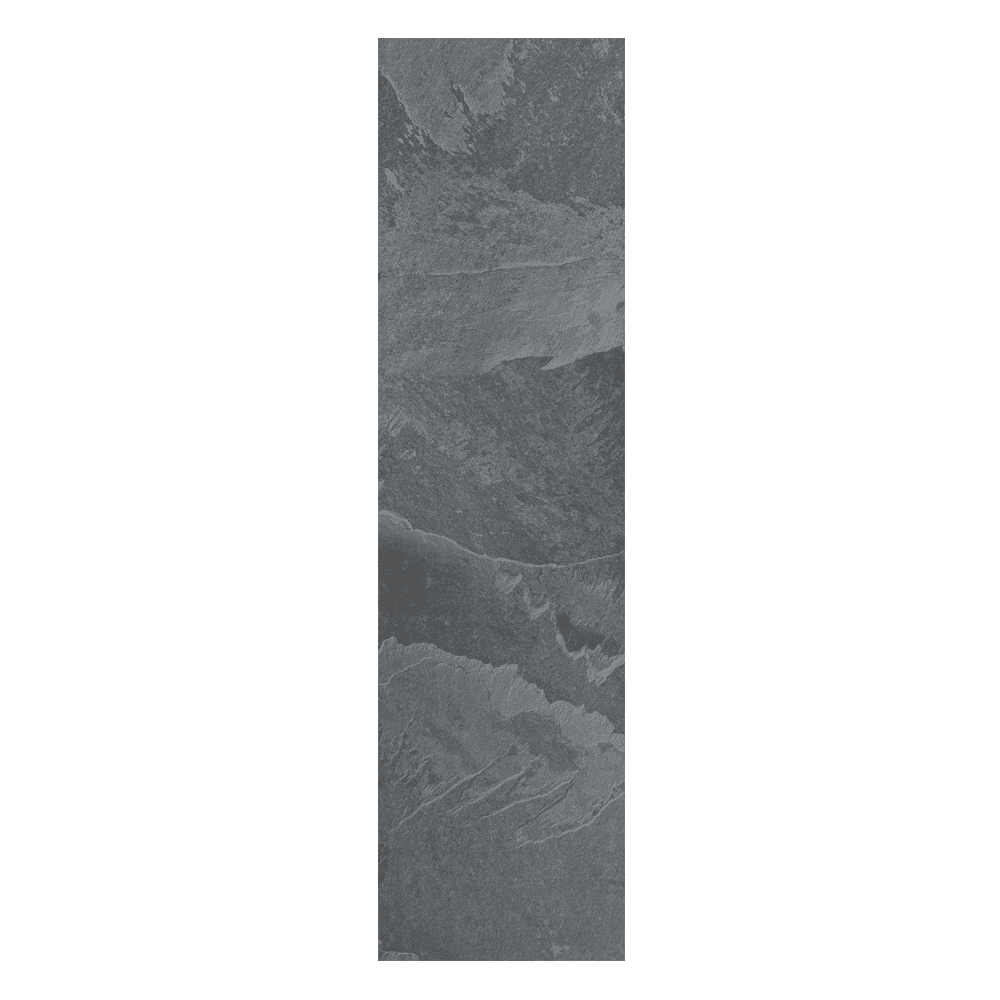 CEMENT FEEL – Concrete Slab Tiles
CEMENT FEEL – Concrete Slab Tiles -
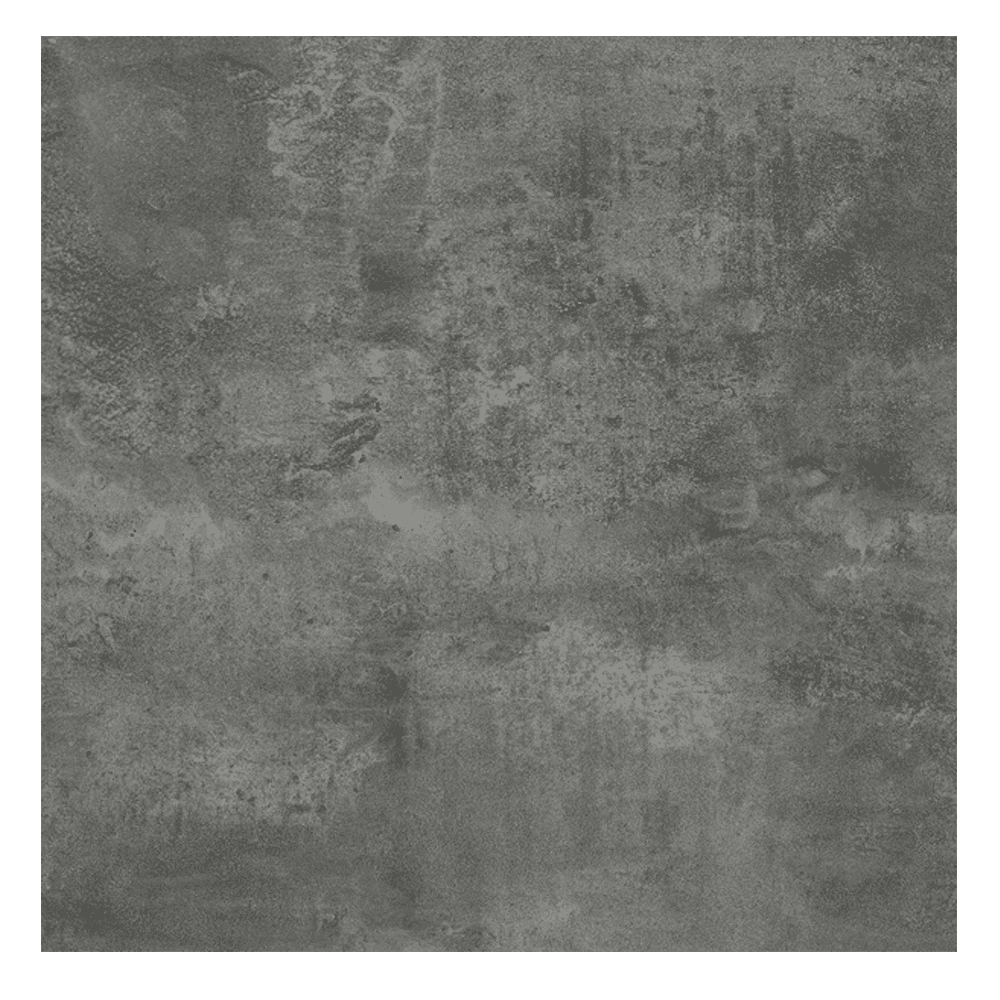 ORION NERO – Concrete Look Tiles
ORION NERO – Concrete Look Tiles -
 ORION GREY – Concrete Look Tiles
ORION GREY – Concrete Look Tiles -
 ORION CHOCO – Brown Concrete Look Tiles
ORION CHOCO – Brown Concrete Look Tiles -
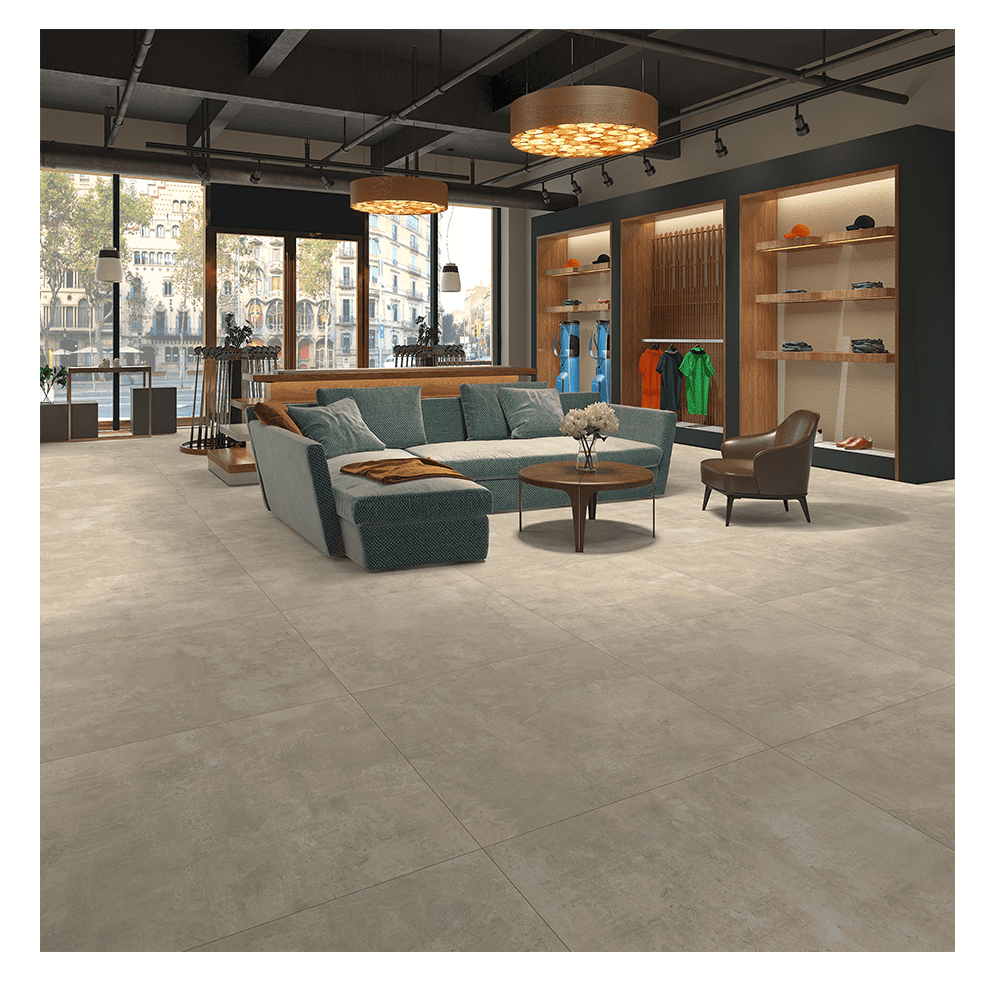 ORION CREMA – Cream Concrete Look Tiles
ORION CREMA – Cream Concrete Look Tiles -
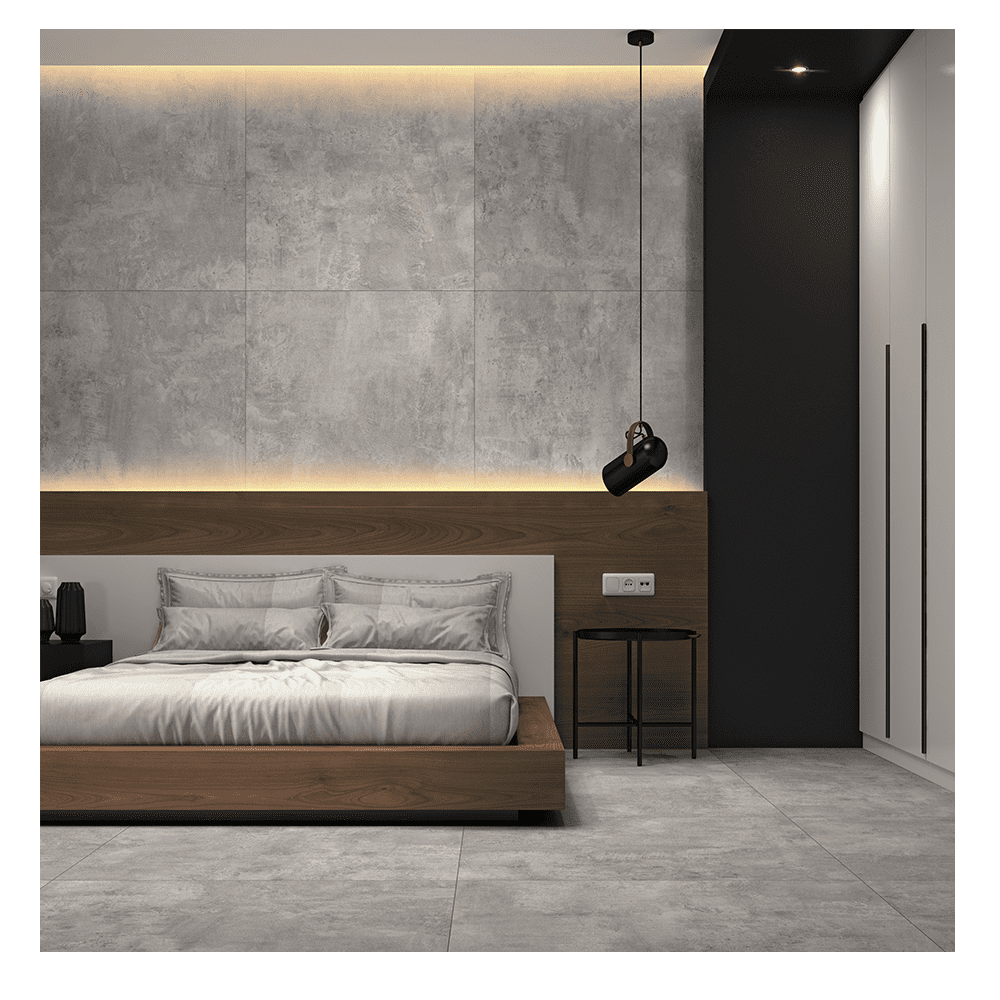 ORION BIANCO – Light Grey Concrete Look Tiles
ORION BIANCO – Light Grey Concrete Look Tiles -
 ORION BEIGE – Concrete Look Tiles
ORION BEIGE – Concrete Look Tiles -
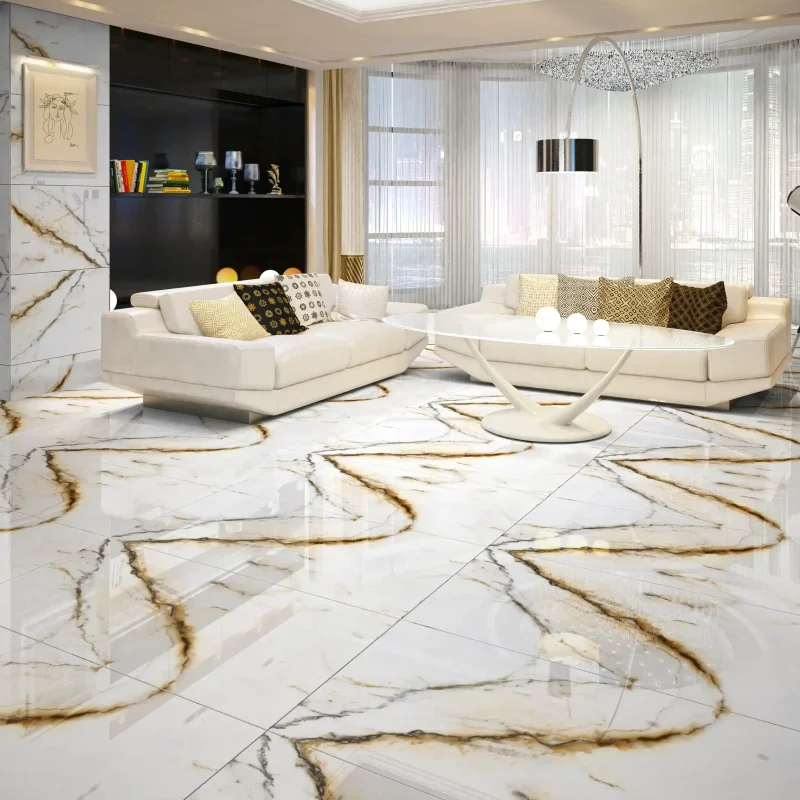 ATS131 Marble Tile in Porcelain
ATS131 Marble Tile in Porcelain -
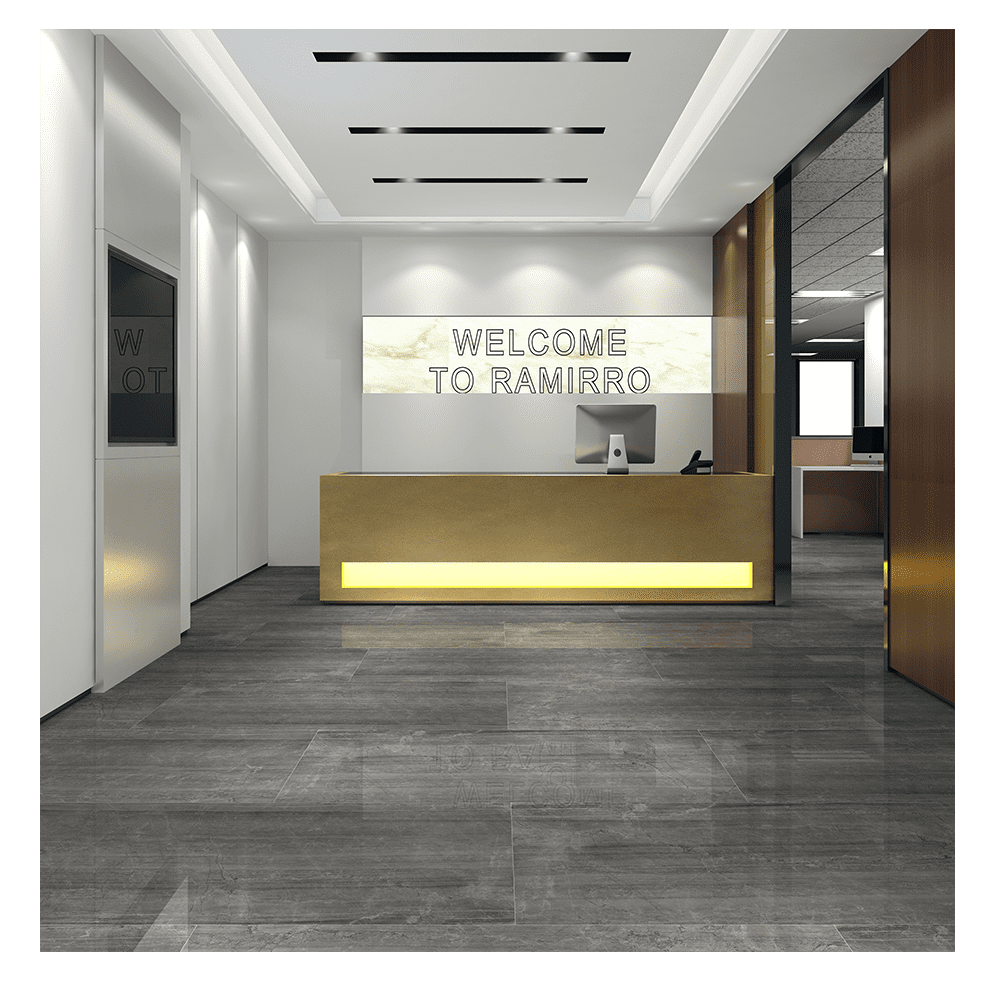 NORDIC GREY – Concrete Slab Tiles
NORDIC GREY – Concrete Slab Tiles
Tile Designs in Middle East
When it comes to tile designs in Middle East, the options are endless! Whether you prefer classic or contemporary styles, traditional or innovative designs, there’s a tile design to match your taste and preference. Here are some popular tile designs and patterns you’ll find in Middle Eastern homes:
Classic Designs and Patterns
Classic tile designs and patterns are timeless and elegant, often featuring geometric shapes and intricate motifs. These tiles are typically found in historical buildings and traditional homes. Some popular classic tile designs include:
- Checkerboard pattern
- Herringbone pattern
- Subway tiles
- Victorian tiles
Read More: 23+ Tiling patterns you need to know.
Contemporary Designs and Patterns
Contemporary tile designs and patterns are sleek and modern, often featuring bold colors and abstract shapes. These tiles are typically found in contemporary homes and commercial spaces. Some popular contemporary tile designs include:
- Geometric tiles
- Abstract tiles
- Metallic tiles
- Textured tiles
Traditional Designs and Patterns
Traditional tile designs and patterns are rustic and charming, often featuring natural materials and warm colors. These tiles are typically found in country homes and cottages. Some popular traditional tile designs include:
- Terracotta tiles
- Hand-painted tiles
- Natural stone tiles
- Moroccan tiles
Innovative Designs and Patterns
Innovative tile designs and patterns are creative and unique, often pushing the boundaries of traditional tile design. These tiles are typically found in avant-garde homes and art spaces. Some popular innovative tile designs include:
- 3D tiles
- Optical illusion tiles
- LED tiles
- Customized tiles
No matter which tile design or pattern you choose, tiles are a versatile and durable material that can add style and functionality to any space in Middle East.
Tile Production Methods in Middle East
In Middle East, tiles can be produced using various methods, each with its own unique advantages and disadvantages. The production method used can have a significant impact on the final look and quality of the tiles. Here are some popular tile production methods in Middle East:
Handmade Tiles: These tiles are crafted by hand using traditional techniques and can have variations in size, shape, and color. They have a unique and rustic appearance that adds charm to any space.
Ceramic Tiles: These tiles are made by heating natural clay in a kiln at high temperatures. They can be produced in a range of colors, sizes, and finishes, making them a versatile option for any room.
Porcelain Tiles: These tiles are made from a finer clay and fired at higher temperatures than ceramic tiles. They are incredibly durable and moisture-resistant, making them ideal for high-traffic areas.
Terracotta Tiles: These tiles are made from natural clay and have a warm, earthy tone. They are typically handmade and have a rustic appearance that complements Mediterranean-style homes.
Mosaic Tiles: These decorative tiles are crafted from glass, ceramic, or stone and are often arranged in intricate patterns and designs. They are a versatile option for adding a pop of color and texture to any space.
Handcrafted Tiles
Handcrafted tiles are made by skilled artisans who use traditional techniques to create tiles one by one. This method of production can result in unique and beautiful tiles that showcase the individual craftsmanship of the artisan. Some advantages of handcrafted tiles include:
- Each tile is unique
- Customizable design options
- Durable and long-lasting
However, handcrafted tiles can also be more expensive and time-consuming to produce compared to other methods.
Machine-made Tiles
Machine-made tiles are produced using automated processes in a factory setting. This method of production is efficient and cost-effective, and can result in consistent and high-quality tiles. Some advantages of machine-made tiles include:
- Consistent quality
- Lower cost compared to handcrafted tiles
- Large production capacity
However, machine-made tiles can sometimes lack the unique character and charm of handcrafted tiles.
Digital Printing on Tiles
Digital printing on tiles is a relatively new method of production that allows for intricate and detailed designs to be printed directly onto tiles. This method of production is often used for creating custom designs or replicating the look of natural materials such as wood or stone. Some advantages of digital printing on tiles include:
- Detailed and realistic designs
- Customizable design options
- Large production capacity
However, digital printing on tiles can sometimes result in lower-quality tiles that may not be as durable as handcrafted or machine-made tiles.
No matter which production method is used, tiles remain a popular and versatile material in Middle East for both interior and exterior design applications.
Top Tile Manufacturers, Supplier in Middle East
Middle East is a hub for some of the world’s leading tile manufacturers, providing a diverse range of high-quality tile products for both residential and commercial applications. These manufacturers are known for their innovative designs, cutting-edge technology, and exceptional quality control standards.
They offer a wide range of tiles in various sizes, shapes, colors, and textures to suit every taste and style. These tiles are made from various materials, including ceramic, porcelain, natural stone, and glass, and can be used for flooring, walls, backsplashes, and more.
Whether you’re renovating your home or designing a new commercial space, Middle Eastern tile manufacturers can provide you with the perfect tile solution to meet your needs. With their commitment to quality and excellence, you can be sure that you’re getting the best of the best when you choose tiles from these manufacturers. Here are some of the top tile manufacturers in Middle East and their best tile products and design collections:
Ramirro Ceramica
Ramirro is a Indian tile manufacturer known for its innovative and stylish tile designs. The company offers a wide range of tile products, including porcelain, ceramic, and natural stone tiles, as well as mosaics and decorative tiles. Some of their best tile collections include:
- Solid Surface tiles
- ceramic wood tiles or wood-look tiles
- Color body porcelain tiles
- Full body or through porcelain tiles
- Marble Look porcelain tiles
- Vintage collection
- Pastel collection
- Stone look tiles
- Terracotta tiles
- Mosaic tiles
- Subway tiles
- Quartz stone for countertops
- Porcelain countertops for kitchen
And many more collections. -> Shop online at Ramirro.com
This is one of the top tile manufacturer in Middle East offering a wide range of tile products to suit any design style and application. Whether you’re looking for classic, contemporary, or innovative tile designs, this manufacturer has something to offer for every budget.
The Best Tiles for Specific Areas
Popular Tile Trends in Middle East
- Metallic finishes
- Large format tiles
- Terrazzo tiles
- Geometric patterns
The Best Tile Showrooms in Middle East
When it comes to finding the perfect tiles for your home or business, visiting a tile showroom is a great way to see the latest trends and get inspiration for your project. Here are some of the best tile showrooms in Middle East, along with a brief overview of their unique tile collections.
Ramirro Ceramica: Ramirro is a high-end tile showroom based in Middle East, with dealer showrooms located across the continent. They specialise in the production of all kinds of ceramic, porcelain, and mosaic tiles, offering a wide range of colors and designs, from classic to contemporary. Their collection includes textured tiles, patterned tiles, and large-format tiles, making it easy to find the perfect tile for any project.
Maintaining Tiles in Middle East
Tiles are a popular choice for floors, walls, and countertops in homes and businesses throughout Middle East. While tiles are durable and easy to clean, they do require regular maintenance to keep them looking their best. Here are some tips for maintaining different types of tiles:
- Ceramic and porcelain tiles: These types of tiles are among the most popular in Middle East. They are easy to clean and maintain, but they can become stained or discolored over time. To clean ceramic or porcelain tiles, use a mild detergent and warm water, or a specialized tile cleaner. Avoid using harsh chemicals or abrasive cleaning tools that can damage the surface of the tiles.
- Natural stone tiles: Natural stone tiles, such as marble, granite, and slate, are beautiful and durable, but they require more care than ceramic or porcelain tiles. To clean natural stone tiles, use a pH-neutral cleaner that is specifically designed for use on natural stone. Avoid using acidic or abrasive cleaners that can damage the surface of the tiles. Seal natural stone tiles regularly to prevent staining and damage.
- Glass tiles: Glass tiles are often used as decorative accents in bathrooms and kitchens. To clean glass tiles, use a gentle glass cleaner or a mixture of vinegar and water. Avoid using abrasive cleaners or tools that can scratch or damage the surface of the tiles.
Common tile problems and their solutions:
- Stains: Stains can be caused by spills or discoloration over time. To remove stains from tiles, use a specialized stain remover or a mixture of baking soda and water. For tough stains, consult a professional tile cleaner.
- Cracks and chips: Cracks and chips can be caused by heavy impact or wear and tear. Small chips and cracks can often be repaired with epoxy or resin, while larger damage may require replacing the affected tiles.
- Grout discoloration: Over time, grout can become discolored or stained. To clean grout, use a specialized grout cleaner or a mixture of baking soda and water. For tough stains, consult a professional tile cleaner.
By following these cleaning and maintenance tips, you can keep your tiles looking their best for years to come. Remember to always read the manufacturer’s instructions for cleaning and maintenance, and consult a professional if you have any concerns about the condition of your tiles.
Tile Shopping Tips in Middle East
If you’re planning to buy tiles in Middle East, there are a few things you should keep in mind to ensure that you get the best possible products at the best possible prices. Here are some tile shopping tips to help you make the most of your purchase:
- Consider the size and shape of the tiles: Tiles come in a variety of sizes and shapes, and it’s important to choose the right ones for your project. Consider the size of the area you’re tiling, as well as the layout and design of the space, to help you choose the right size and shape of tiles.
- Think about the material: Tiles can be made from a variety of materials, including ceramic, porcelain, natural stone, and glass. Each material has its own unique properties and characteristics, so it’s important to choose the right material for your project.
- Consider the color and design: Tiles come in a wide range of colors and designs, from classic and traditional to modern and contemporary. Choose a color and design that complements the overall design and decor of your space.
- Check the quality: It’s important to choose high-quality tiles that are durable and long-lasting. Look for tiles that are made from high-quality materials and that have been properly tested and certified.
- Shop around: There are many places to buy tiles in Middle East, from large home improvement stores to smaller boutique tile shops. Shop around to compare prices and selection, and don’t be afraid to ask for discounts or deals.
- Consider the installation: Before buying tiles, consider how they will be installed and whether you will need to hire a professional installer. This can affect the overall cost of your project, so be sure to factor in installation costs when budgeting for your tile purchase.
- Timing: The best time to buy tiles in Middle East is usually during the off-season when prices are lower and there may be sales or promotions available. Check for end-of-season sales or clearance events to get the best deals.
In terms of where to buy tiles in Middle East, there are many options available, from large home improvement stores to smaller boutique tile shops. Some of the most popular places to buy tiles include Home Depot, Leroy Merlin, and Brico Depot. However, it’s also worth checking out smaller, independent tile shops for more unique and personalized tile options.
Read More: Download 5000+ Tiles Designs Catalogue for Free – 2023
Tile Prices in Middle East
Tiles are a popular choice for flooring, walls, and backsplashes in Middle Eastern homes and businesses. With so many different types of tiles available, it can be challenging to determine which ones are the best value for your budget. In this article, we will compare the prices of different types of tiles and discuss the factors that affect their cost.
Cost Comparison of Different Types of Tiles
- Ceramic Tiles
Ceramic tiles are the most commonly used tiles in Middle East due to their affordability and durability. The cost of ceramic tiles can vary depending on the quality, size, and design. On average, ceramic tiles can cost anywhere from €10 to €50 per square meter.
- Porcelain Tiles
Porcelain tiles are denser and more durable than ceramic tiles, making them an excellent choice for high-traffic areas. The cost of porcelain tiles can range from €20 to €100 per square meter.
- Natural Stone Tiles
Natural stone tiles, such as marble, granite, and travertine, are a luxurious option that can add value to your property. However, they are also the most expensive type of tiles, with prices ranging from €50 to €200 per square meter.
- Mosaic Tiles
Mosaic tiles are small tiles that are usually made of ceramic, porcelain, or glass. They are often used for decorative purposes and can be more expensive than larger tiles due to the intricacy of their design. The cost of mosaic tiles can range from €20 to €150 per square meter.
Factors That Affect the Price of Tiles
- Size
The size of the tile is one of the main factors that affect its price. Larger tiles are generally more expensive than smaller ones because they require more material to produce.
- Material
The material used to make the tile is another factor that affects its price. Natural stone tiles are typically more expensive than ceramic or porcelain tiles because they are harder to quarry and require more processing.
- Design
The design of the tile can also affect its price. Tiles with intricate patterns or designs are usually more expensive than plain tiles.
- Brand
The brand of the tile can also impact its price. Well-known brands may be more expensive than lesser-known ones, even if the quality is similar.
No worries, Ramirro Ceramica has a variety of tiles available in your budget.
Sustainability in Tile Production
As for sustainability, Ramirro Ceramica is known for their commitment to using eco-friendly materials and production methods in their tile production. They use recycled materials whenever possible, and their production process is designed to minimize waste and reduce their carbon footprint.
Choosing the Best Tile for Your Budget available in Middle Eastern Continent

DIY Tile Installation Tips
Installing tiles in your home can be a great DIY project that adds value to your property while giving your space a fresh new look. In this guide, we’ll cover everything you need to know to install tiles on your own.
Essential Tools for Tile Installation
Before getting started, you’ll need to make sure you have the necessary tools to complete the job. Here are some essential tools for tile installation:
- Tile cutter
- Notched trowel
- Grout float
- Rubber mallet
- Tile spacers
- Level
- Tape measure
- Chalk line
- Mixing bucket
- Grout sponge
- Safety glasses and gloves
Step-by-Step Guide to Tile Installation
Step 1: Prepare the Surface
The first step to installing tiles is to ensure that the surface you’ll be tiling on is clean and free from debris. You may need to remove old tiles or clean the surface thoroughly to achieve a clean, flat surface.
Step 2: Measure and Mark the Surface
Measure the area you plan to tile to determine the number of tiles you’ll need. Use a chalk line to create a grid on the surface, making sure the lines are straight and even. This will help ensure your tiles are installed in a straight line.
Step 3: Apply Thinset Mortar
Using a notched trowel, apply a thin layer of thinset mortar to a small section of the surface. Make sure to follow the manufacturer’s instructions for mixing the mortar.
Step 4: Place the Tiles
Place the tiles onto the thinset mortar, starting at the center of the area you’re tiling. Use tile spacers to ensure even spacing between tiles. Use a level to ensure the tiles are flat and level with each other.
Step 5: Cut Tiles to Size
When you get to the edges of the area you’re tiling, you may need to cut tiles to fit. Use a tile cutter to cut the tiles to the correct size.
Step 6: Allow the Thinset to Dry
Allow the thinset to dry completely before grouting. This usually takes 24 to 48 hours.
Step 7: Apply Grout
Using a grout float, apply grout to the tile surface. Make sure to work the grout into the spaces between the tiles.
Step 8: Wipe off Excess Grout
Use a grout sponge to wipe off excess grout from the surface of the tiles. Allow the grout to dry completely, following the manufacturer’s instructions.
Step 9: Apply Sealant (Optional)
Applying sealant to your newly installed tiles can help protect them from damage and staining. Follow the manufacturer’s instructions for applying sealant.
Conclusion
In conclusion, the timeless elegance and unbeatable durability of tiles in Middle Eastern architecture and interior design! For centuries, tiles have been a staple in homes and buildings across the continent, boasting stunning aesthetics and incredible versatility. Whether you’re a designer seeking to create a classic or contemporary look, or a homeowner looking to add a touch of sophistication to your space, tiles are the perfect choice.
But not all tiles are created equal. When it comes to selecting the best tiles for specific areas, you need to consider essential factors such as water resistance, slip-resistance, and durability. In the kitchen, you can’t go wrong with porcelain tiles, thanks to their robustness and easy maintenance. For the bathroom, you’ll want tiles that can withstand water, making mosaic and ceramic tiles the ideal choice. And for your living room, large format tiles with bold designs will make a trendy statement. If you’re looking to bring the beauty of the outdoors inside, natural stone tiles can give your outdoor area a rustic, earthy look.
Now, you might be wondering where to find the best tiles to suit your needs. Look no further than RAMIRRO Ceramica, a top tile manufacturer and showroom that stands out from the rest. Their unique and high-quality tile collections will transform your space and make it the envy of your friends and family. So why settle for ordinary tiles when you can have extraordinary ones from RAMIRRO Ceramica?
Don’t miss out on the chance to elevate your home or building’s design with the timeless elegance of tiles. Choose RAMIRRO Ceramica, the premier tile manufacturer and showroom in Middle East.
Here are list of Middle Eastern countries where you can buy RAMIRRO’s ceramic tiles
- Bahrain
- Iran
- Iraq
- Israel
- Jordan
- Kuwait
- Lebanon
- Oman
- Palestine
- Qatar
- Saudi Arabia
- Syria
- Turkey
- United Arab Emirates
- Yemen
Why Should You Trust us?
Here’s what you get out of our article. Our team have various Ceramic Experts with experience of more than 25 Years, researches on problems our customer faces in tiling industry.
Ramirro Ceramica, – One of The Leading Tiles Manufacturer and Supplier globally, helps you people gain knowledgeable insight before making your purchase decision for products related to the floor and wall tiles.
So, we have closely monitored all kinds of trends in the ceramic tiles manufacturing world, from the old days of clay and plain color to modern digital, realistic-looking designs printed on ceramics with high-depth effects.
Our tiling Experts have seen thousands of different tiles patterns, sizes, materials, pricing, and installation techniques throughout their career.
Their expertise shared with you in simplified and organised way, helps you choose and make better decision before purchasing any flooring option available in market.
Brief about Company:
Ramirro is one of the finest Tiles manufacturers in India manufacturing porcelain and ceramic tiles. Our products have a variety of sizes and types of tiles ranging from Ceramics, porcelain, Full body etc. This helps you choose the perfect fit for your project. Plus, our collection will help you get inspiration from the architect’s design.
Here’s some more helpful links that showcase our users trust on Ramirro Ceramica Brand:
– Growth in International Market
– Trusted and Licensed Exporter
– Manufacturing Plant in India
Here’s our social proof by LinkedIn competing with top known global tiling brands:











